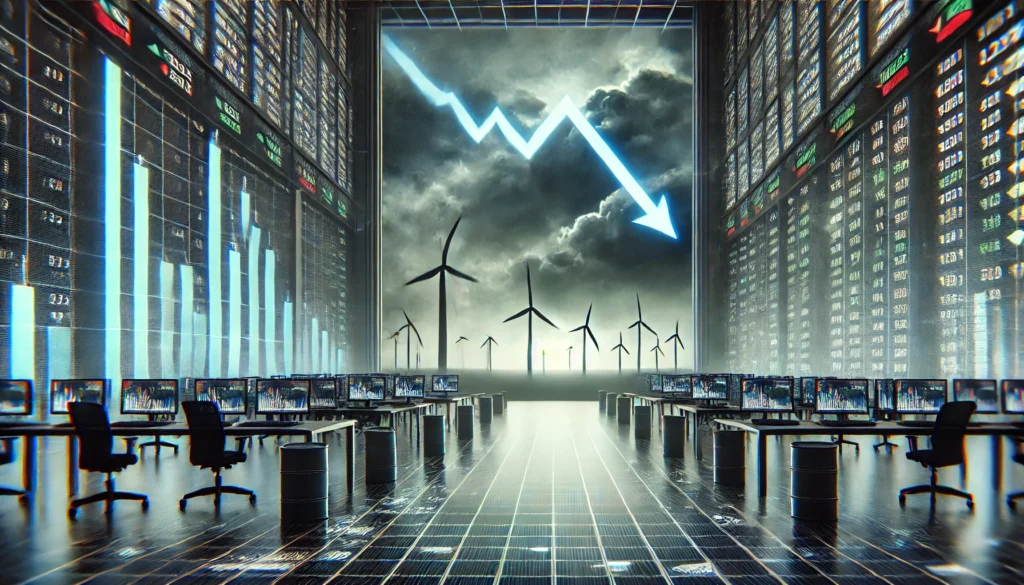The clean energy sector struggles as hedge funds lose confidence. Kanou Capital’s founder, Nishant Gupta, declares wind, solar, hydrogen, and fuel cell investments unprofitable in the current market. Having once been viewed as a sector with good opportunities for investment, the clean energy sector is now wallowing in an environment clearly getting more hostile, and analysts contend that currently there are no money-spinning prospects there. Nishant Gupta, the founder of the hedge fund Kanou Capital in the UK, maintains that presently, there is no money to be made from wind, solar, hydrogen, or fuel cell developments.
“The whole sector—solar, wind, hydrogen, fuel cells—anything clean is dead for now,” Gupta told Bloomberg on August 15, just some hours after one of the largest solar energy players in the U.S. raised concerns about its financial sustainability.
Market Conditions and Investor Sentiment
Gupta, who has a $100 million fund under management, cited that the long-term prospects for the clean energy market seem bright; however, weak fundamentals in the present make it an unattractive short-term investment.
“Short-term, clean energy is not an interesting place to put your money right now,” he continued.
Irrespective of the recent downturns, Gupta anticipated that by the end of this decade, investments toward energy transition would increase tremendously, moving from an estimated $1.8 trillion yearly to an estimated $5-$6 trillion by 2030. One-third of such spending will go toward the supply chain, which Kanou Capital views as an investment opportunity.
Challenges Facing the Clean Energy Sector
The clean energy transition has had multiple hurdles that have hindered it over the last three years:
- Fluctuation in energy prices resulting from the European energy crisis of 2021.
- High interest rates, causing capital-hungry renewable energy projects to become less attractive.
- Disruption in supply chains, leading to solar and wind energy production bottlenecks by putting untenably high capacity targets of transition-minded governments.
- Curtailment of government incentives, reducing financial support created for renewable energy projects.
Further, uncertainty in the renewable energy industry has also increased with Donald Trump coming to power again in the U.S. Trump policies geared toward fossil fuels rather than government-sponsored clean energy incentives may slow investment into solar and wind projects and make financing of such projects much tougher for green energy companies.
Long-Term Outlook for Renewable Energy
While the current state of the market may be challenging, experts within the industry hold an optimistic outlook on the long-term growth of renewable energy. Global corporations and governments are expected to drive the decarbonization agenda forward, with a focus on supply chain efficiencies and innovation.
Gupta said that the current downturn would better be described as a short-term correction rather than an outright collapse, and the industry would be kicking back after the capital starts flowing in again into the transition technologies.
Conclusion
The clean energy industry continues to be an enormously significant part of the global energy transition, notwithstanding its struggles in the short time. While hedge funds and institutional investors may back away now, the renewables sector has a strong demand fundamentally. Given the ramp-up and advancement of technology within the next decade, it is anticipated that this sector will recover and flourish in the long term.

